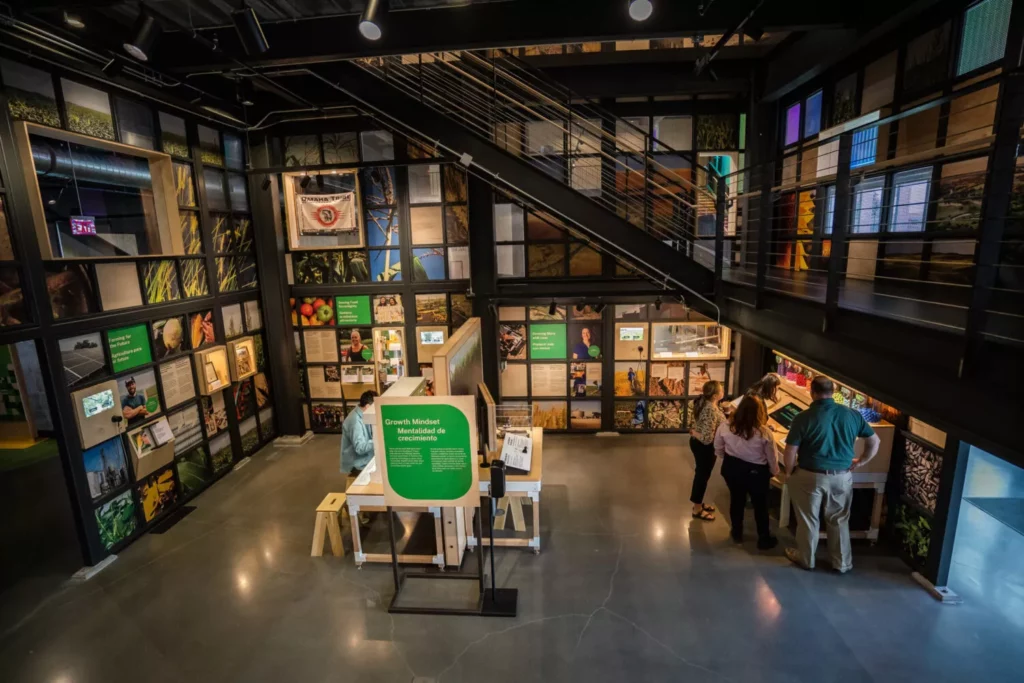Article originally published by The Nebraska Examiner author Cindy Gonzalez. Photo by Joel Perez.
View original story here(opens in a new tab).
The Kiewit Luminarium science museum on Omaha’s riverfront has announced it is offering free year-round admission to registered members of federally recognized Native American tribes.
The new policy is a “continuing acknowledgement that the land on which the Luminarium sits was first occupied and cared for by Indigenous peoples,” said a media statement.
The announcement comes on Indigenous Peoples Day in Nebraska — “a time to recognize and celebrate the rich history, cultural traditions and ecological stewardship of our Native communities,” said Silva Raker, Luminarium chief executive officer.
The access policy flows from discussions with leaders including Judi gaiashkibos, executive director of the state-funded Nebraska Commission on Indian Affairs, who commended the museum for engaging Native youths in STEAM (science, technology, engineering, arts and math) opportunities.
“When we celebrate Indigenous Peoples Day we honor the resilience, spirituality and environmental stewardship of the First Peoples of Nebraska,” gaiashkibos said.
The Nebraska Legislature in 2020 voted to designate the second Monday of October as Indigenous Peoples Day in the state, joining it with Columbus Day. It is also a federal holiday.
The new Luminarium policy allows free entry to anyone who identifies as Indigenous and presents a federally recognized tribal identification card, the statement said. Free admission would apply to family members accompanying the tribal member as well.
Currently at the museum, which opened in April, members of the Omaha Tribe are featured in an exhibit called “Sowing Food Sovereignty.” The exhibit highlights the tribe’s participation in the JAG Nebraska (Jobs for America’s Graduates) program. Through that program, students of Umoⁿhoⁿ Nation High School operate a seven-acre farm, growing and selling produce and managing the farm’s finances.
Suzi French, a member of the Omaha Tribe and director of the farm, said she and the students were awed and honored to see their culture and people celebrated at the world-class museum.
“Indigenous access to a museum dedicated to science, art and community will have an impact on the next generations of not only the Omaha Tribe, but of all Native communities,” said French.
